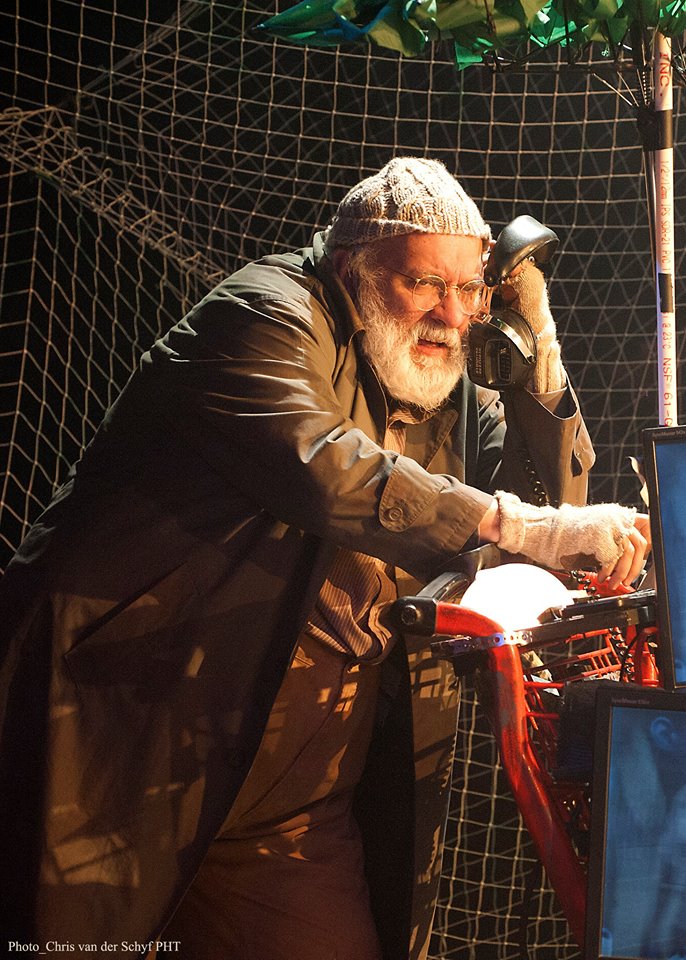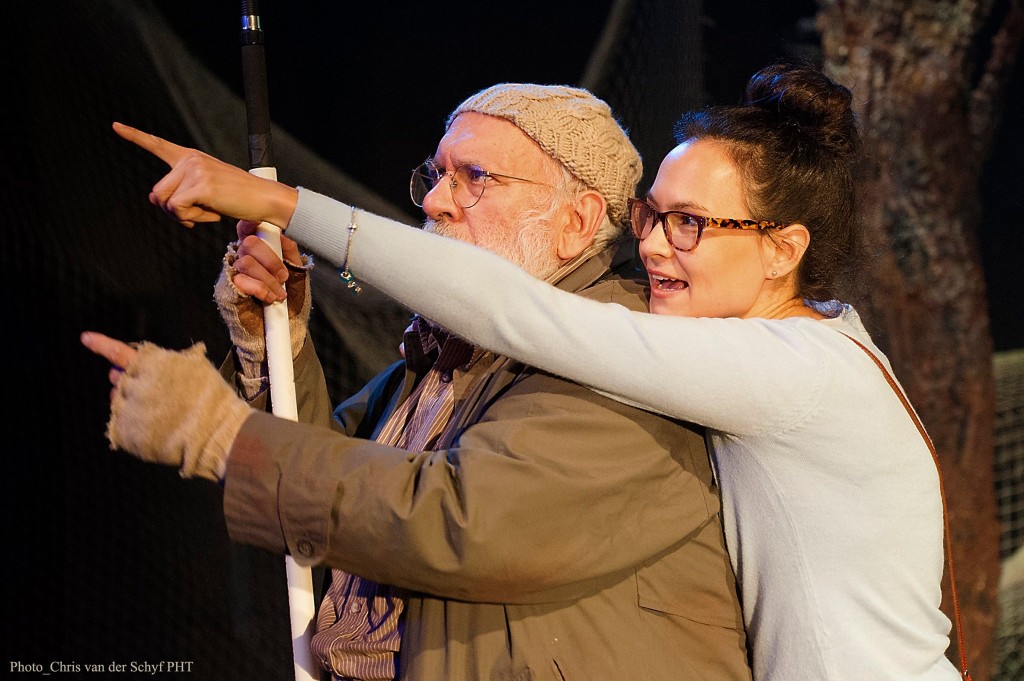
At Presentation House until October 25, 2015
604-990-3474/ boxoffice@phtheatre.org
Posted October 17, 2015
It’s hard to say how well I WISH will work with Grades 4-8, its target audience. Kids these days seem so sophisticated. But the goals of the show, featuring Jay Brazeau and Emilie Leclerc, are valuable and once the show gets into its audience participation phase, it starts to get interesting.
Directed by Giuditta Mingucci, I WISH is part of an ambitious international project called Boomerang involving three European theatre companies (from Berlin, Milan and Portugal), one in Australia and two in Canada, including North Vancouver’s Presentation House Theatre. Initiated and organized by Berliners Dirk Nelder and Odette Bereska, representatives of the six companies got together in North Vancouver in June 2014 and began working on a series of co-productions, funded by the European Culture Program (with a grant of 200,000 Euros), aimed at youth aged eleven to fifteen. Presentation House Theatre was paired with Teatro Elsinor (Milan).
(Boomerang, the over-arching project title, was rejected in Australia because of its cultural appropriation from the indigenous population. Down under the project is called Documents of Poverty and Hope, borrowing from what surfaced, after hundreds of interviews, as the main concerns of both young and old.)
Here in Canada, writers Col Cseke, Nathan Pronyshyn, Linda A. Carson and Kim Selody interviewed a similar demographic, drawing from that group their hopes and dreams of a better future.
I WISH, the play the writing team created, eventually evolves from an initial fairytale-ish or allegorical setup into participatory theatre: Leo, a derelict old man (Brazeau), pushes a shopping buggy loaded with gizmos including four computer monitors, a glowing globe, sheets of cardboard and a fishing rod (which, it turns out, has a microphone on the end). Leo has been roaming around the world collecting wishes and storing them in a database. Along comes Sandra (Leclerc), a fresh young thing, who calls him “Uncle Leo” and initially she seems to want to help him. But they struggle over the buggy, they fight with fishing rod and broomstick (?) and she accuses him of killing her mother. She leaves in a huff; she comes back. Oh, yes, Leo has lost his voice somewhere along the way. And he loses all the wishes he has stored because of a computer breakdown. Sandra ‘sings’ them back. (I’d be singing, too, if retrieval of files was so easy.)

But Leclerc eventually goes into the audience to collect wishes. It was a very hesitant audience to begin with on opening night because we weren’t certain she was actually asking us to speak up. But once the wishes started coming in, the show began to gel. “A puppy.” “A pet dinosaur.” “A unicorn.” These were the small-voiced wishes from the little ones in the audience. “I wish to see my dad” from someone who had recently lost her father. If an adolescent had volunteered a wish, I suspect it would have been “an iPhone” or “an iPad”.
From the adults: “I wish that young woman (Leclerc/Sandra) would stop persecuting that sweet old man (Brazeau/Leo).” Laughter followed. And finally things got serious as the adults volunteered what they wished for: “World peace.” “Participatory democracy”. “Peacekeeping”.
The goals of I WISH are lofty and are synchronized with the curriculum of Grades 4, 5 and 6. A study study guide is available to teachers bringing their students to Presentation House to participate in and to add to the conversation.
While the play doesn’t work all that well – we adults were often confused about who was the good guy/girl, who was the bad guy/girl – I WISH opens up an opportunity for young people to talk about the future and to consider what they might do to make it brighter. That’s the mandate and it’s the participatory aspect of I WISH wherein its value lies.

